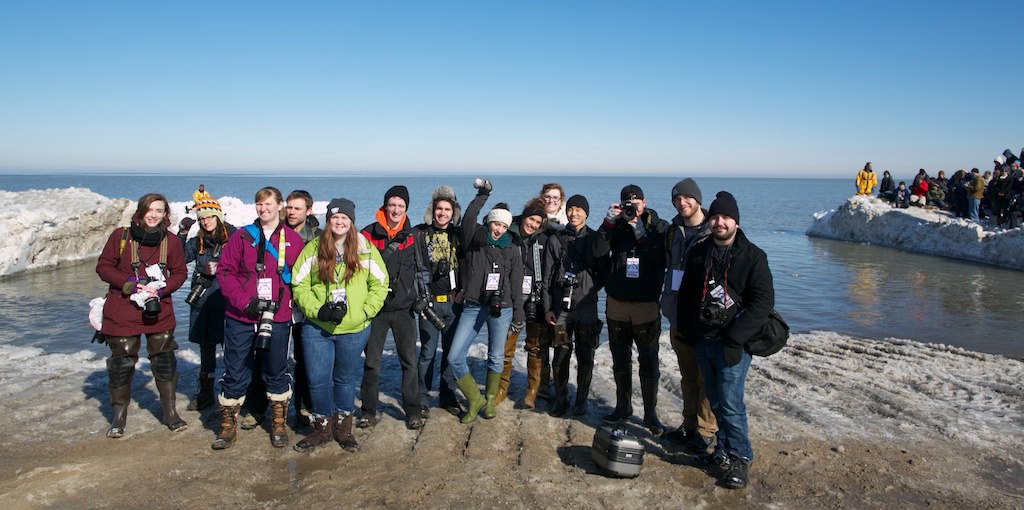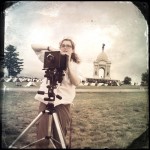RIT National Press Photographers Association
From Maureen MacGregor, President of RIT NPPA:
When I came to RIT for orientation two years ago I really didn’t know what photojournalism was about – until I was introduced to the RIT NPPA. During orientation all of the new PJ kids met the chair of the program, William Snyder, who urged us all to attend RIT NPPA meetings. He had the President of the club come in and tell us about the organization and personally invite us all to join. It sounded like an incredible resource – The National Press Photographers Association is a national organization that represents working photojournalists and video journalists all over the country providing legal representation and career building seminars and courses. On the student level, the RIT NPPA promotes and encourages quality photojournalism and acts as a platform for students to display and talk about work outside of the classroom. But when the time came to actually go to meetings I, and many of my peers, did not.
Why would I forgo such an incredible resource as a freshman? Simple: I was afraid. I had a tough time making friends when I first came here. I was shy and afraid to talk to anyone outside of my classes. The people in NPPA were older, and my work wasn’t as good as theirs, etc. But by the end of the year, I had made some friends and I finally got up the courage to start attending meetings. When I started attending, the club was a low point in it’s history: attendance was poor and they were in the process of impeaching the president. But I kept going each week because I knew that eventually something would change and it would be worth it. The older students started to befriend me and let me in on the gossip. They wanted to hear what I had to say, and it was very empowering. I listened to them talk about topics I had always had questions about. And then, it was time for new-officer elections. I put my name in the hat and ran unopposed for secretary. I got it, obviously. By the end of the elections the club had almost completely new leadership. We entered the new year unfettered by what had “always” been done, and sought to begin new traditions and rework the structure of the group to attract membership and begin to build a strong community within the program.
We began taking attendance at every meeting and found that our membership held strong all year. At weekly meetings we chose the best photos our members had taken that week and talked about them in a way that you don’t often hear in the classroom in your first two years. We photographed the annual Mud Tug competition and Polar Bear Plunge as a group; sent people out all over the city to photograph the November 2012 elections. We Skyped with alumni Nicole Fruge and Edmund Fountain; held photobooth fundraisers and bake sales to raise funds for our biggest event every year: The 13th Annual “What We Do” Competition and Exhibition.
Last year was an incredible year; I grew so much and I am so proud to be this year’s President. As this summer comes to a close, we are gearing up for the new year by planning more outreach into the first two years to make them feel more welcome than I did my freshman year; looking into bigger venues for The “What We Do” Competition and Exhibition; shooting more events and subjects as a group and will be providing critical mentorship to younger members.
The E-Board and myself are so excited to kick off this new school year with a bang and we can’t wait to meet the photojournalism class of 2017.
RIT NPPA at the Polar Plunge
Maureen MacGregor, from Cleveland, OH, is a third year Photojournalism major in the School of Photographic Arts & Sciences at RIT. She is the President of the RIT NPPA and has previously served as the group’s Secretary and Vice President. Maureen discovered photography at a young age after being set loose on the world by her father with an old Konica point and shoot camera. Maureen is also currently pursuing a minor in Arabic Language and aspires to become a documentary photographer of human rights and conflict.

